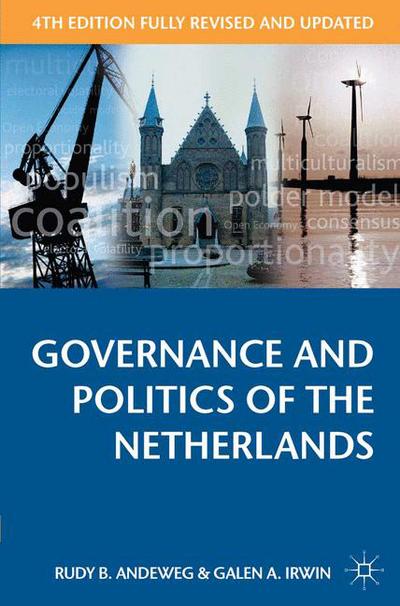
Governance and Politics Of The Netherlands
By Rudy B. Andeweg & Galen A. Irwin
Palgrave Macmillan – £32.99
Tomorrow, March 15th, The Netherlands will go to the polls and decide upon the election of all 150 members of it’s House of Representatives. And given recent events, it looks set to be an all out, feisty affair.
With the incumbent Prime Minister, Mark Rutte (of the VDD (People’s Party for Freedom and Democracy) having formed a coalition government with the PvdA (the Labour Party) back in 2012, tomorrow’s election will obviously be marred, if not fundamentally influenced by two people: Geert Wilders – the country’s answer to Donald Trump of the PVV (Party for Freedom), and Turkey’s rather misguided, utterly vile President, Recep Tayyip Erdogan – who really ought to know better than to equate Holland with Nazism.
That said, Erdogan’s vitriolic rhetoric is not only a sad sign of the (inflammatory) times, it will undoubtedly do much to influence the outcome of the election – probably/unfortunately in Wilders favour. All of which is an exceedingly far cry from almost all of what is both coherently and concisely written throughout the eleven chapters of Governance and Politics Of The Netherlands by By Rudy B. Andeweg & Galen A. Irwin.
For instance, one need only read as far as page twelve to ascertain that The Netherlands is no longer the country it once was: ”[…] the golden age established traditions of openness and tolerance in the Netherlands. In 1661, the Leiden manufacturer and political scientist Pieter de la Court wrote ‘that our manufactures, fisheries, commerce and navigation, with those who live from them, cannot be preserved here without a continual immigration of foreign inhabitants – much less increased or improved’ (quoted in Israel, 1995, p.624).”
Hmm, absolutely no longer is such the case any more, which, given the altogether disturbing events which recently took place in Rotterdam, is surely understandable. This is especially so when one considers Turkey also has further referendum rallies planned in both Germany and Austria (again, neither of which are particularly welcome).
So far as an intrinsically crystal-clear understanding of Dutch governance and politics is concerned, this book sheds more than cohesive light on a nation, normally associated with that of political calm; particularly when aligned with an ethos of cooperation and compromise on the part of citizens and politicians on the key issues for parliamentary debate.
With immigration on the rise, these 287 pages (excluding Preface, Further Reading, Bibliography and Index) do much to substantiate how and why the Dutch electorate has become ever more unpredictable.
Written by two professors at the country’s respected Leiden University, Governance and Politics Of The Netherlands makes for a most informative, interesting and altogether timely read. That said, following the outcome of tomorrow’s Dutch election, it remains to be seen if it’ll need updating – almost immediately.
David Marx

